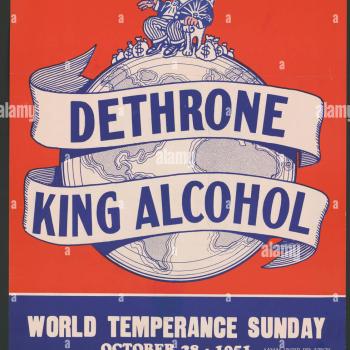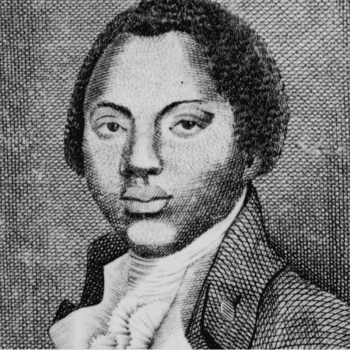 If you haven’t run across the Babylon Bee yet, check it out. It’s the evangelical version of the satirical online news source The Onion, and it’s made a big splash. In its first three weeks, the Bee has scored more than one million page views.
If you haven’t run across the Babylon Bee yet, check it out. It’s the evangelical version of the satirical online news source The Onion, and it’s made a big splash. In its first three weeks, the Bee has scored more than one million page views.
Even the Washington Post has noticed, last week running a profile of the evangelical Onion. The Bee’s popularity is well earned. It’s really quite funny. Take, for example, the following fake headlines:
- “Witty Church Sign Sparks Revival”: It includes the following quote: “I’ve never talked to God in my life,” claimed area resident Darrell Jones, “but when I saw that ‘Son screen prevents sin burn,’ I pulled right over, dropped to my knees, and begged God for forgiveness. Right there on the side of the road I gave my life to Jesus Christ. Later on, Brother Dwayne told me that’s called ‘sending God a knee-mail.’”
- “Mountain Climber Recovering after Decision to Let Go and Let God”
- “Worship Leader Caught in Infinite Loop between Bridge and Chorus”
The Bee is the brainchild of Adam Ford, a 32-year-old father from Detroit who has suffered from anxiety and clinical depression. In some ways, Ford has followed the trajectory of one of his favorite targets Joel Osteen, who says in one fake story, “Well I just decided one day I wasn’t going to let the enemy hold me back anymore, and I started boldly declaring before God each and every day that I was going to fly.”
Of course, evangelical satire isn’t entirely new. The venerable Wittenburg Door, for example, enjoyed a long run for several decades. Launched in 1969 as a four-page mimeograph for southern California youth workers, the first issue spelled “Wittenberg” incorrectly. The chagrined editors (Paul Sailhamer and Gary Wilburn, who were then followed by Bob Patterson, then Mike Yaconelli, then Ole Anthony, then Bob Darden) decided to let the mistake remain, as if to violate traditional literary convention as much as the insipid middle class conventions of their parents. The magazine soon grew from a small newsletter to a full-blown magazine dedicated to merrily jabbing at evangelicalism’s foibles. “We’re trying to shoot down sacred cows that maybe shouldn’t be sacred cows in the church,” they wrote in 1976.
 The Door featured a harder edge than the Bee. In 1975 it devoted an entire issue to “The Totaled Woman,” which undertook a scathing critique of Marabel Morgan’s immensely popular The Total Woman (a book that told women to greet their husbands at the door wearing nothing but Saran Wrap, a trench coat, and a martini). One issue, which sought to critique religious materialism pictured the biblical Mary holding a baby Santa Claus. Somehow the Door managed to persuade a stunning array of famous people—including Campus Crusade founder Bill Bright, evangelist Billy Graham, conservative pundit William F. Buckley, congressional candidate Tony Campolo, eminent historian George Marsden, white supremacist David Duke, singer Larry Norman, the evangelical feminist Letha Scanzoni, and many others—to answer difficult questions in long interviews.
The Door featured a harder edge than the Bee. In 1975 it devoted an entire issue to “The Totaled Woman,” which undertook a scathing critique of Marabel Morgan’s immensely popular The Total Woman (a book that told women to greet their husbands at the door wearing nothing but Saran Wrap, a trench coat, and a martini). One issue, which sought to critique religious materialism pictured the biblical Mary holding a baby Santa Claus. Somehow the Door managed to persuade a stunning array of famous people—including Campus Crusade founder Bill Bright, evangelist Billy Graham, conservative pundit William F. Buckley, congressional candidate Tony Campolo, eminent historian George Marsden, white supremacist David Duke, singer Larry Norman, the evangelical feminist Letha Scanzoni, and many others—to answer difficult questions in long interviews.
They were also activists. The iconoclastic magazine took particular joy in terrorizing misbehaving prophets of the prosperity gospel. Its parent organization, the Trinity Foundation in Dallas, investigated fraudulent televangelists (see here for a television news report). Recently they provided Senator Chuck Grassley and the Senate Finance Committee with data on Benny Hinn, Creflo Dollar, Kenneth Copeland, and company. According to this website, Door editors and publishers offered food and housing for the homeless in Dallas, ministered to prisoners, and held daily Bible studies that were open to the public.
The Door’s editors also had a lot of fun. Perhaps my favorite cartoon was entitled “The Song of Solomon Illustrated (for our literalist friends).” It featured a drawing of Solomon’s lover with doves as eyes, hair like a flock of goats, temples like a slice of pomegranate, breasts like fawns, and so on. (Click here for the “provocative” image.) Given such delightful historical evidence, the Door was my favorite primary source to consult during research on my dissertation—and then book—on the evangelical left. In fact I bought the entire run on compact disc. And you can too—for only $30!















